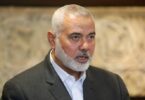F.P. Report
LAHORE: Chief Justice of Pakistan (CJP) Justice Mian Saqib Nisar has on Thursday summoned former prime minister Nawaz Sharif in suo motu case against the high fees of private medical colleges across the country.
A two-member bench of the Supreme Court headed by the chief justice Justice Mian Saqib Nisar and comprising Justice Ijazul Ahsan resumed hearing of the case in the apex court’s Lahore registry.
During the proceedings, the CJP asked why the owners of Sharif Medical College didn’t appear before the court to which the college principal said that he didn’t receive the court notice due to which they couldn’t appear before the court.
Justice Saqib asked who the trustee of the college is to which the principal replied former PM.
The CJP then summoned Nawaz Sharif.
The Chief Justice asking the principal to inform the court about the amount of fee charged to students ordered the submission of the bank accounts and other all information of the College on next date of hearing.
The Chief Justice also remarked that the court is trying that money should not be an obstacle to education.
All the medical colleges should show flexibility to give admission to deserving students who could not pay the fees and if for thsi purpose they have to contact philathorists they should do it, he added. The court called for detailed information of Sharif Medical College including the accounts at the next hearing.
On the other hand, Punjab Governor Rafiq Rajwana’s son Ahsan Rajwana appeared before the court.
When Chief Justice asked him why had he called the woman lawyer Asif said that he has family terms with ad-vocae Anjum saying that he did not threatened her in any way but had only called her because he knows her personally.
When Chief Justice reprimanded him that he wanted to stop the woman lawyer from recording her statement Asif answered in negative.
Later on Asif Rajwana offered unconditional apology to the court for calling the female lawyer and also submitted an apology letter to the court.
The unconditional apology was accepted by the court.






